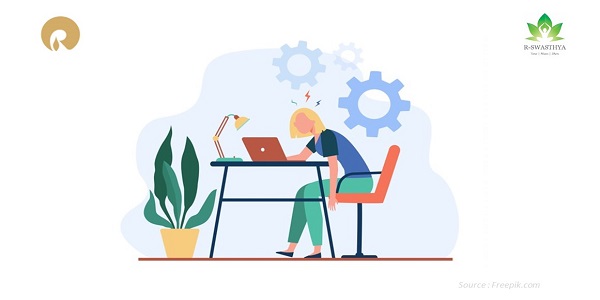Procrastination is the act of unnecessarily postponing decisions or actions. It’s a common problem, which chronically affects approximately 20% of adults and 50% of college students, and can lead to issues such as missed opportunities and increased stress.
Procrastination comes in many disguises. To resolve to tackle a task, but find endless reasons to defer it. To prioritize things that can be readily ticked off from the to-do list – such as answering emails, and leaving the big, complex stuff untouched for another day. Look and feel busy, while artfully avoiding the tasks that really matter. And when one looks at those rolling, long-untouched items at the bottom of the to-do list, one can’t help but feel a little disappointed.
The reason why this happens is because the brain is somewhat programmed that way. In general, everyone tends to struggle with tasks that promise future benefit in return of efforts being made in the present. That’s because it’s easier for our brains to process concrete rather than abstract things, and the immediate hassle is very tangible compared with those unknowable, uncertain future benefits. The reality is that at most times, one doesn’t lack time. One just wastes most of it on perceived busyness.
An average user spends two and a half hours daily on social media in 2022. As of 2020, Netflix users watched an average of 3.2 hours of video per day through the service — that’s 6 billion collective hours per month. When we look at these stats, it’s easy to think, “Wow! People waste so much time” as if we don’t contribute to these stats. But we do. Hence, it’s better to accept that we don’t lack time — but just that we waste most of it. Once we accept this, we can do something about it: like cultivating tiny habits that save time.
8 practical ways to stop procrastinating:
1. Break the work into little steps
Part of the reason why one procrastinates is that subconsciously, one finds the work too overwhelming. Break it down into little parts, then focus on one part at a time. If one still procrastinates on the task after breaking it down, then break it down even further. Soon, the task will be so simple that one will realise that they could do it right away.
2. Time-blocking
Time-blocking is an easy time-management hack by Cal Newport that takes just a minute but leads to so much clarity in the day. The night before, simply divide the coming day into 30-minute blocks and assign tasks to them.
Here’s why it works wonders:
- It eliminates the procrastination that stems from trying to decide “when” to start working. If one decides when to start working in real-time, procrastination is inevitable. They might think that, they will start working in 5 minutes — but those 5 minutes will turn into an hour without realizing it. But if it’s already decided that one needs to start working at 2 o’clock the next day, the chances of procrastination are reduced massively — if not diminished completely.
- Also, when one lays out the day on a piece of paper and assigns tasks, they realize that they actually have a lot of time in a day. Doing this every day will help get rid of the “lack of time” mindset.
3. Eat the frog first!
“If it’s the job to eat a frog, it’s best to do it first thing in the morning. And If it’s the job to eat two frogs, it’s best to eat the biggest one first.”
Eating the frog is basically doing the most challenging and dreaded task of the day. And while one has time-blocked it the night before, it’s best to schedule it first thing in the morning. The simple reason being that the most challenging task of the day is also the one that induces the most procrastination. Hence, the later one schedules it, the more time they might waste, procrastinating because of the stress it induces. But if it is done first thing in the morning, one will feel like a winner all day.
4. Change the environment
Different environments have different impacts on productivity. Look at the work desk and room. Do they make one want to work, or do they make one want to snuggle and sleep? If it’s the latter, look into changing the workspace. One thing to note is that an environment that makes one feel inspired now may lose its effect after some time. If that’s the case, then it’s time to change things around.
5. Eliminate procrastination pit-falls
If one is procrastinating too much, it may be because it is easy to procrastinate.
To avoid procrastinating, try to remove every possible distraction from the work environment—both physical and digital. For example, take out the phone, put it on ‘Do Not Disturb,’ and then put it in a drawer that requires physical movement like getting up to check it. Disable the notifications and alerts on all devices, too. Basically, un-plug before the plug-in and focus. Another way is to identify browser bookmarks that take up a lot of time and shift them into a separate folder that is less accessible. Disable the automatic notification option of an email. Get rid of the distractions around.
6. Start a timer
This is the most underrated tool for productivity on phone. Before starting to work, set a timer for an hour, or maybe 40 minutes, whatever works. One can also set different time periods for different parts of the day depending on how cognitively tired one is or how demanding a task is. The main reason why this method works is because a timer anchors one to the task at hand and makes distractions almost impossible. Because your mind knows the timer is on, it’s going to stay focused. This happens because a timer creates a sense of accountability.
7. Get to the root of it
Sometimes, it can be helpful to understand exactly why one has been procrastinating a specific task. Afraid of something? Maybe one feels overwhelmed and does not know where to start. Fill in the sentence; “ Avoiding this task because…” or “Avoiding this task because I’m afraid that….” and see what shows up. Identifying fears can help one realize the monsters in the closet aren’t as bad as one thinks.
8. Reward yourself
Another way to motivate yourself to complete a task is to create a reward that you can get once the task has been completed. Research shows that the human brain responds to reward stimulus and this can be a good way to create habits.
For example, you can take a short break to watch a TV show that you like for every chapter that has been read in preparation for a test. One can also find ways to make one’s progress feel more rewarding, such as going over the to-do list at the end of each day, to feel good about how much work got done.
Follow the above productivity tips to avoid procrastination and get work done.

Image Courtesy: Freepik.com
